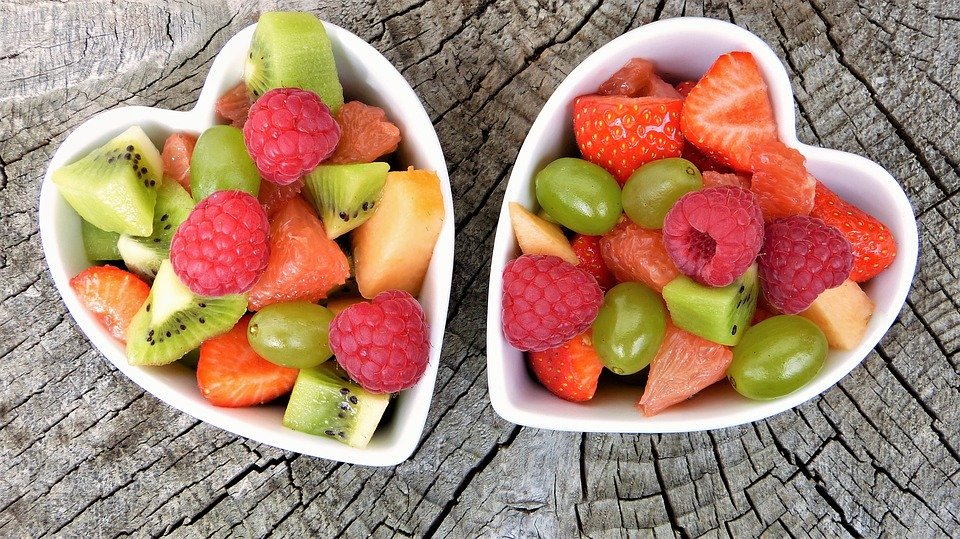For years, our ears have been attuned to hearing the universal truth that exercise is the best form of medicine. It’s a truth that keeps getting passed down from generation to generation. More recent research, however, points to the fact that this is really only half the truth – the other half being the big role that sports nutrition plays in our everyday lives.
The food you eat directly impacts your body and its performance. We all know the basic components of food – proteins, carbohydrates and fats, which make up the bulk, and minerals, fibres and water, which are also needed inadequate measures. They all serve different purposes and are required for the proper functioning of our bodies.
What is Sports Nutrition or Performance Nutrition?
A human being in the normal course of the day expends energy even doing routine things like walking, breathing and talking. We get this energy from the food we eat. It is recommended that 55% of our energy intake come from carbohydrates, about 15% from protein and 30% from fat sources.
Nutrition for athletes must go beyond this baseline because athletes expend a lot more energy throughout the day than a normal human does. Both carbohydrates and fats give us energy. For an athlete doing daily strenuous exercise for more than an hour, the recommended carbohydrate energy intake rises to above 65%. Recommended fat sources in the athlete diet are the good fats coming from nuts, avocados, and olive oil while keeping the bad fats from biscuits, cakes and chips at bay.

Sports Nutrition or Performance Nutrition concerns itself with the systematic planning of a diet that is scientifically proven and suitable for athletes, but not limited to athletes. Current scientific thinking shows a strong link between carbohydrates and exercise. All carbs are broken down into sugar (or glucose), the primary source of energy for our bodies. A pre-event meal 3 to 4 hours before starting exercise is highly recommended as part of the athlete diet. This might also include a pre-exercise snack a couple of hours before exercise. Carbohydrates like lollies or muesli bars are recommended nutrition for athletes during exercise. These foods give athletes that quick energy boost in between exercise. Post-exercise carbs like sandwiches, cereal or pasta can be consumed 1 to 2 hours after exercise. Proteins are also needed post-exercise to build and repair muscle. One consistent and important part of sports and exercise nutrition is to keep the body hydrated at all times – water is the best drink to achieve this, but athletes can add juices to their routine which also gives that supplementary boost of energy. As far as possible, the athlete diet should be all natural – the need for nutritional supplements should not arise unless there is a deficiency.
What Foods Constitute an Athlete Diet?
We list out a few foods below that serve as excellent nutrition for athletes.
Fruits

Smaller fruits are great convenience snacks after a rigorous bout of exercise. They can be easily carried around in a small container and munched on when the need arises. Fruits like blackberries, raspberries, blueberries and cherries are rich in antioxidants, which need to be restocked after exercise. Sports and exercise nutritionists recommend darker berries as they have the ability to prevent bodily stress post strenuous exercise. They are also great for preserving long term muscle strength. Cherries are known to reduce inflammation and aid muscle relaxation after high-performance running. The athlete diet recommends cherry juice post exercise to help reduce muscle soreness.
Bananas are post-exercise superfoods for athletes. They help rebuild the electrolyte levels that get depleted during exercise. Since athletes need to drink a lot of water during and after exercise, bananas can help in regulating that fluid intake to some extent. Bananas are also rich in potassium and can help prevent muscle cramps which high performance athletes are very vulnerable to.
Veggies, Beans, and Nuts
Green leafy vegetables are needed by everybody, including athletes on a performance nutrition plan. Veggies are a great source of antioxidants, minerals and vitamins that help boost athletic abilities. The iron present in many veggies helps with increased oxygen supply, which assists working muscles. Beans and legumes are the protein source recommended for vegetarians (and non-vegetarians alike). They do not contain saturated fats like most meat does, and the fibre that they contain helps you feel full. Nuts are another source of protein for vegetarians following an athlete diet. When eaten alongside carbs they help prolong the energy source that carbs provide.
Fish
Oily fish like salmon and mackerel are rich in omega-3 fatty acids (the good fat) and an excellent source of lean protein. They not only help reduce inflammation post strenuous exercise but also play a supplementary role of cleansing your arteries. Fish can be the primary source of protein nutrition for athletes over red meat.
Pasta
Carbohydrates are an important piece of the athlete diet as we mentioned before. Pasta, which is a carbohydrate food and can be a good snack, must be consumed in moderation, especially if consumed pre-event. Wheat pasta is the better option over white pasta.
Milk and Oatmeal

Milk is a great source of calcium as we all know. But it is also a great source of fat and protein, and can double up as a post-exercise drink. Oatmeal contains energy carbs and fibre. Oatmeal combined with milk can be an excellent post-exercise meal which will keep you full longer.
Oils
Oils are an important component of any diet. For an athlete diet the recommended oils are flaxseed oil, olive oil or coconut oil. Flaxseed oil contains omega-3s, while olive oil contains monounsaturated fats. Both have anti-inflammatory properties. Coconut oil, which contains MCTs, helps with endurance training.
An athlete diet, while being an absolutely critical part of an athlete’s lifestyle, is not restricted to athletes alone. Any individual interested in developing a personal sports nutrition plan can do so easily by doing some research online. Performance nutrition is a well-established science. There are online courses like this one that can guide you with understanding nutrition for athletes and individuals alike.
Looking to enhance your knowledge of sports and exercise nutrition? Join our top-rated professional diploma in sports & exercise nutrition today!














